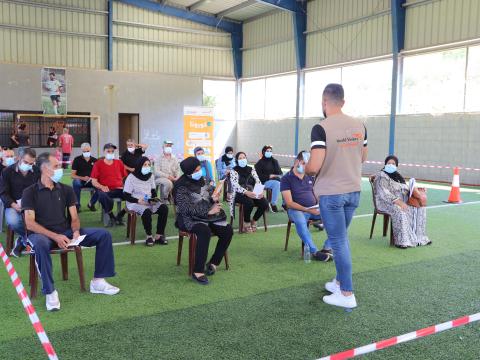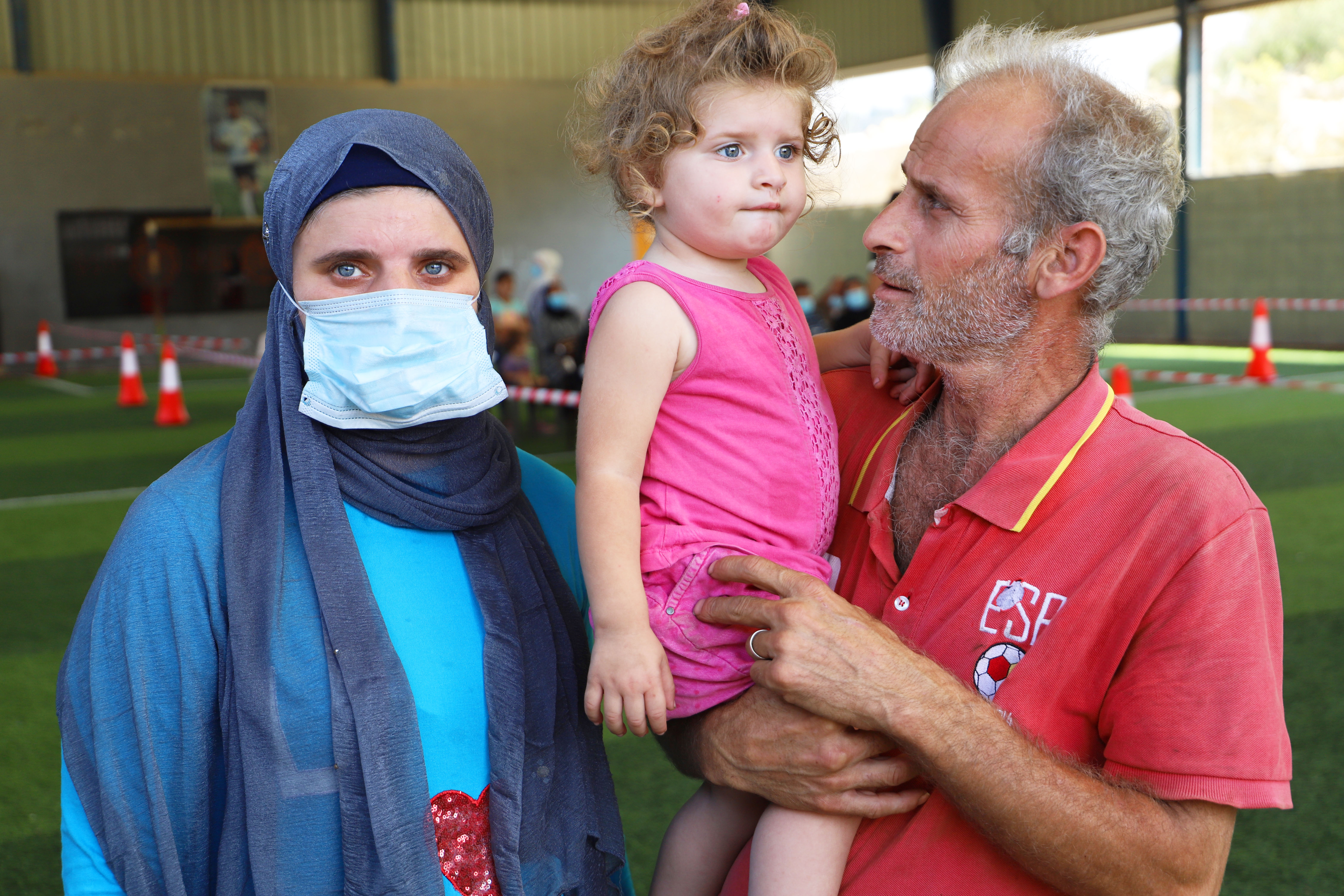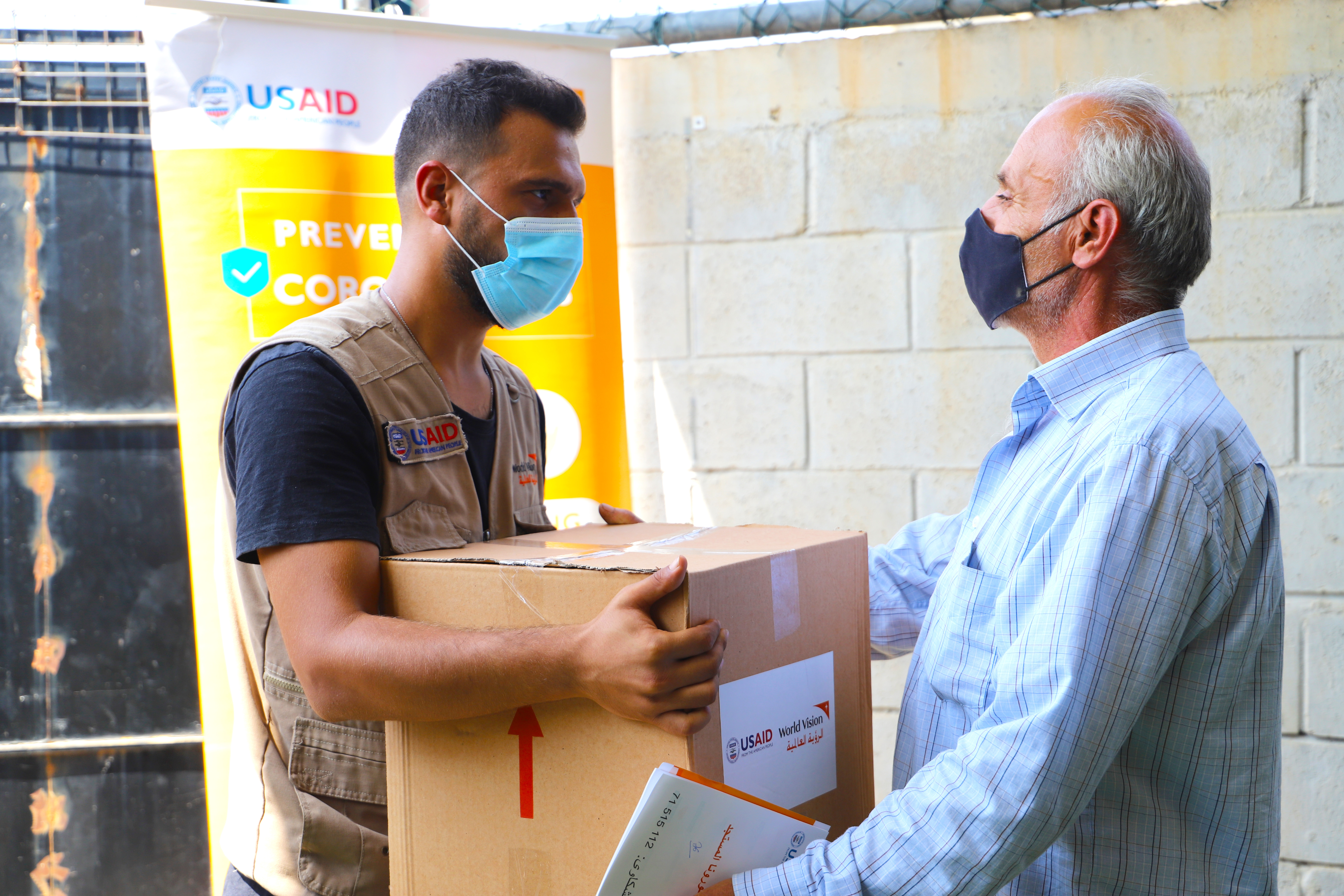Amoun: A timely support

Our story today is from the North of the country, where some of Lebanon's poorest residents live. Families who have been severely impacted by the economic crisis and the pandemic find themselves unable to maintain a once-normal life. “I still recall when life was better. It’s been downhill for over three years now, yet we are still trying to adapt,” says forty-year-old Amoun.
Amoun and her husband Hsein are trying whatever is possible to provide a decent life for their small girl, but the constant crises always change their plans. “It’s just unbelievable what happened to the currency; it just kept deteriorating while prices kept inflating. A bag of bread used to be 1,000 Lebanese pounds, now, it’s over 20,000. No one would have expected this to happen,” says forty-three-year-old Hsein.
Hsein is a daily worker, he fixes home electronic machines to provide for his family. “People are tending to fix their broken machines such as refrigerators rather than buying a new one. However, they are not able to even pay for the cheap repair. I can’t always do the repairs for free because I have a family to feed and rent to pay,” he says. “To cut our costs, we are living without electricity so we don't pay the expensive bills for the private electricity generator.”

In the past year, World Vision, with the support of USAID's Bureau of Humanitarian Assistance (BHA), provided essential hygiene items and COVID-19 awareness sessions to families across Lebanon. Amoun and her family are very grateful for the support they received. “Honestly, these items couldn’t have arrived at a better time. They will help us stay clean and protected from the virus. In addition, we can buy milk and diapers for our small girl with the money we would have spent buying the hygiene items,” says Amoun.
As for fifty-seven-year-old Jamal, providing for a big family during an economic crisis is a very difficult task. “I have six children, of which three are still living with us. Most of what I make from my work in sanitation is used for schools and food. To make matters worst, work is very slow recently, I am only working for half of the month,” he says.
People across Lebanon are falling deeper into poverty due to currency depreciation, high inflation, rising prices and loss of income. It is estimated that three-quarters of Lebanon’s residents are now living in poverty conditions. “ I make about four million Lebanese pounds (about 100 USD) per month. I need to spend 1 million every week just to put food on the table,” says Jamal.

“Thankfully, we never caught Covid, since we take high precautions. Thanks to World Vision support I can save some money I would have spent on the hygiene items and probably buy some food instead, along with staying safe at the same time,” adds Jamal.
In North Lebanon (Tripoli and Akkar), the BHA project supported 1,560 shops and 2,510 households with hygiene kits in the hope to keep them safe from the virus and lessen the burden of the economic situation.
